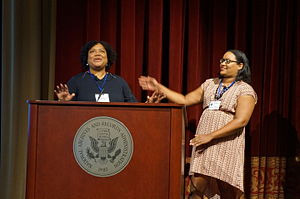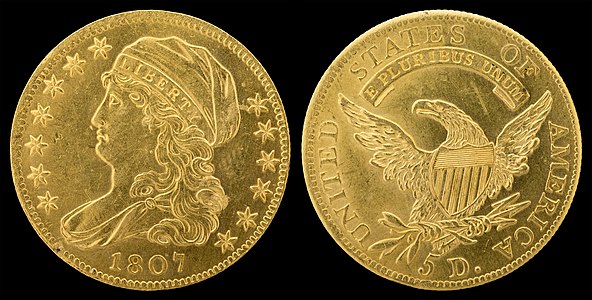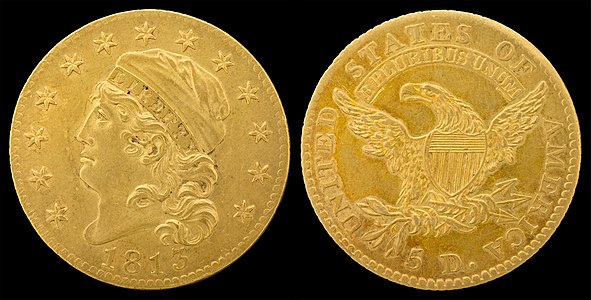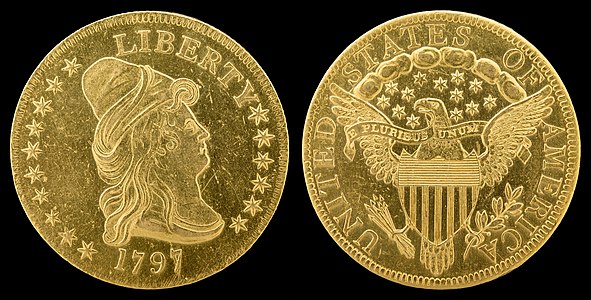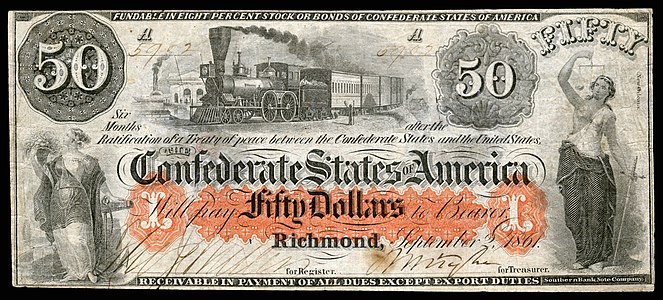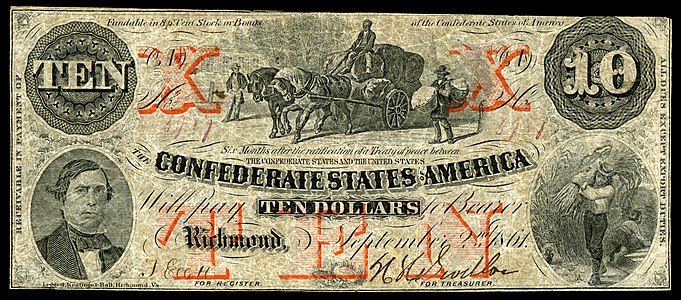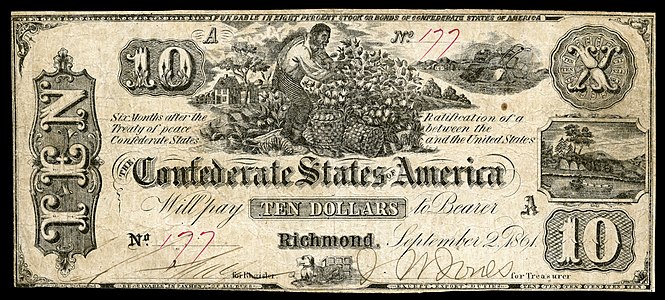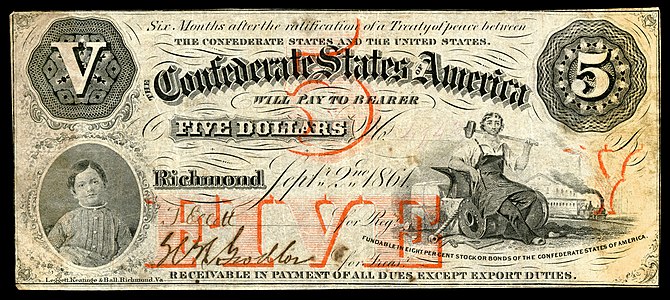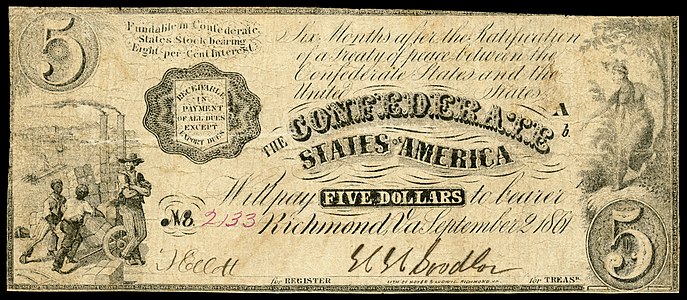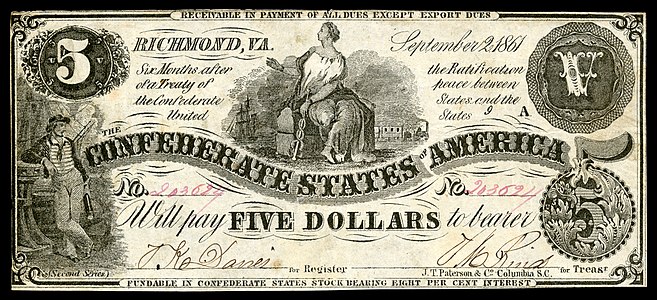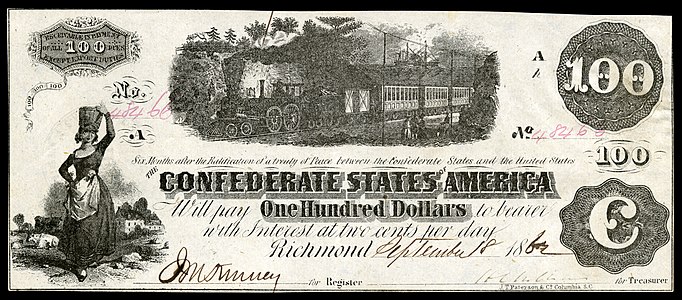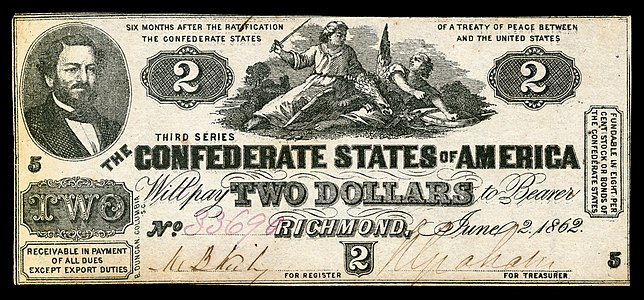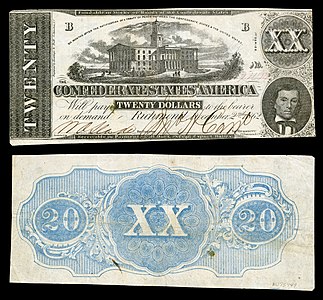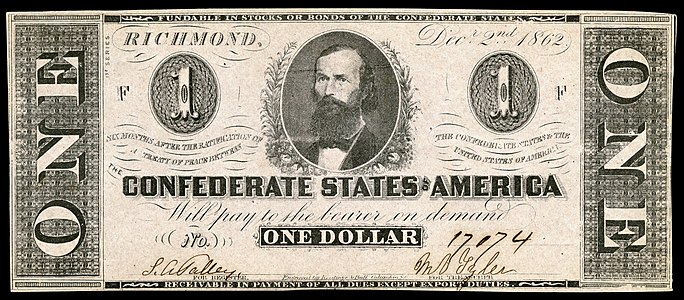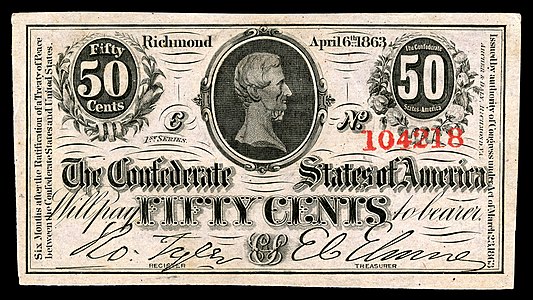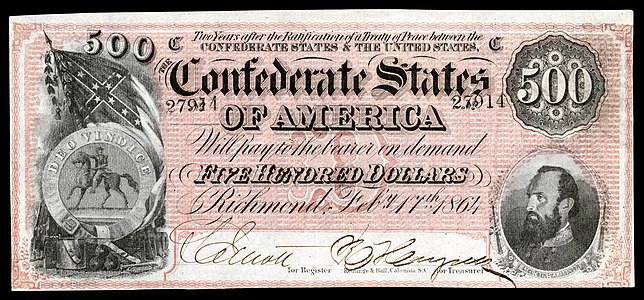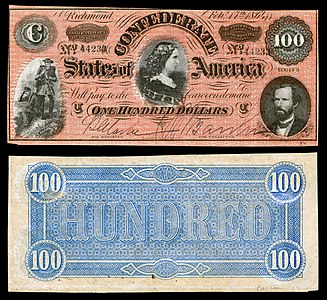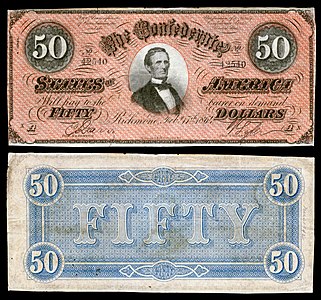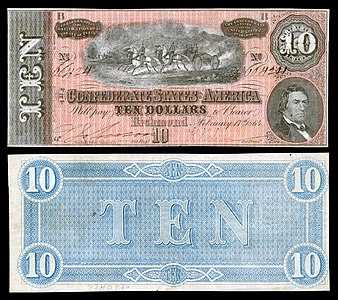WikiConference USA 2015: built on good faith
We often describe Wikipedia as a wonderful resource, a collection of human knowledge. But Wikipedia is also a remarkable collaboration. We believe that human interaction can only make it stronger.
The WikiConference USA is proof. This year, the event was co-sponsored by the National Archives and Records Administration and the Wiki Education Foundation. The conference was organized by volunteers and co-ordinated by Wikimedia DC and Wikimedia NYC and a host of passionate Wikipedians.
The Wiki Education Foundation isn't a grant-making organization; most likely it never will be. However, when people approached us, we were more than happy to help out. Our guiding principle with regard to how we'd provide support was simple. We asked two things: "what are the things about organizing a conference that you, as Wikipedia volunteers, hate the most?" (that's what we provided) and "what are the items that you would like to be in charge of?" (that's what we kept our hands off).
This weekend was a testament to the collaborative spirit of Wikipedia and Wikipedia volunteers. The Wikimedia chapters developed the program, awarded scholarships, designed the wikiconferenceusa.org website, and co-ordinated volunteers for the event.
Since I moved to the United States, I've met some Wikipedians who have told me that they'd never shaken hands with another Wikipedian. The sheer geography of the US makes it difficult to meet. I believe this year's WikiConference was a huge step toward getting to know each other, building trust, and talking about what we love most: Wikipedia. I hope the event also provided a space where people could report on past projects and catalyze new ideas and collaborations.
While we connected people within the Wikipedia world, we wanted to connect the Wikipedia world to those outside it, too. We saw excellent presentations where Wikipedians, academics, librarians, museum workers, and archivists met and built relationships around the work they share.
As we approached this conference, we were eager to experiment with a new way of supporting the local Wikipedia community in the United States. We stepped back and provided resources based on trust. It's a tenet of Wikipedia – "assume good faith." We funded this conference without attaching strings or paperwork. We trusted volunteers to get it right. And they did.
I'm excited that we get to show the powerful results that come from relationships built on openness, trust, and good faith. Thanks so much to our partners at Wikimedia DC, Wikimedia NYC, and to the National Archives for making this event possible.
- Frank Schulenburg is the Executive Director of the Wiki Education Foundation, an independent organization that supports the use of Wikipedia in education in the US and Canada.
US gathering sees speeches from Andrew Lih, AfroCrowd, and the Archivist of the United States
I’ve been a pseudonymous Wikipedia editor for over a decade, but at the recent WikiConference USA at the National Archives and Records Administration (NARA) in Washington DC, I made my first public appearance as a Wikipedian. Once a hobby I kept entirely separate from my professional life, like tinkering with a train set in the garage, it has now become an integral part of my professional career and research. Like other librarians, archivists, and information professionals and the institutions they work for, I’ve realized that Wikipedia and its associated projects are key resources for disseminating and preserving information, knowledge, and cultural heritages.
The conference opened with remarks from Pamela Wright, NARA’s chief innovation officer, who outlined how NARA has been collaborating with Wikipedia in that effort—an endeavor that dates back to Wikipedia’s decennial celebration in 2011. The work has included hosting more than a dozen Wikipedia-related events and uploading more than a hundred thousand files to Commons, including most of the images and files on Wikipedia. In 2011, NARA hired the first Wikipedian in residence in the US federal government, Dominic Byrd-McDevitt. Wikipedians in residence are experienced Wikipedia editors embedded in museums, libraries, and other cultural institutions to help them engage with the encyclopedia.
The keynote speech was delivered by Andrew Lih. Wikipedia’s founder, Jimmy Wales, has become a sort of spokesperson for the encyclopedia, explaining it and its importance to the outside world. Professor Lih plays something of the same unofficial role for academia and the Wikipedia community itself. His rousing speech, “What Wikipedia must do”, was a call to action for editors in eight important areas:
- Improving usability in a time of rapidly growing mobile traffic. Currently visits from mobile devices are 33% of Wikipedia traffic and are estimated to grow to about 50% by 2025.
- Improving social interaction on the encyclopedia itself, possibly by following models from social media.
- Addressing the gender gap and increasing diversity, areas in which Wikipedia struggles because it is dominated by technically adept white males from the global north. One telling comment from Twitter Lih cited, about the resulting problems, said that editing the encyclopedia is like “sending women into a cultural buzzsaw”.
- Engaging experts more. Experts have traditionally been estranged from the encyclopedia for various reasons, and Lih discussed promising new ways to potentially bring their expertise to bear on Wikipedia, some of which I hope to explore in my own research.
- Reimagining ways in which Wikimedians contribute original content, which is what Lih called “what we do best”. He noted that the number of Wikimedians on various projects could generate more original content in one month than the National Geographic Society does in an entire year.
- Improving access to multimedia content on Wikipedia and related projects.
- Forging more productive partnerships with other organizations and institutions.
- Improving relationships between different groups of stakeholders, such as the Wikimedia community and the Foundation, and between veteran and new editors.
Some participants later remarked that Lih’s presentation offered insufficient ways to tackle these problems, but as he had already said in the speech: “that’s really up to you as a community to figure this out.”
After lunch, Dr. John Howard, director of the National Institute for Occupational Safety and Health (NIOSH), part of the Centers for Disease Control and Prevention (CDC), discussed how the US federal government's "science partners" want to engage with Wikipedia, especially after noticing how many of the incoming hits to the CDC's website come from Wikipedia. He noted that Wikipedia is "a major channel for transparency and dissemination of government information and science".
David Ferriero, archivist of the United States, followed with a discussion of the importance of working with Wikipedia, noting that his involvement with online encyclopedias dates back to the abortive Interpedia project back in the early 90s. Ferriero appears to have a talent for delivering readily quotable statements, and this was no exception. He said: "What better way of engaging the American people than engaging the Wikipedia community to get the word out."
A panel presentation followed—including Wright, Byrd-McDevitt, Andrew Wilson, and Darren Cole—discussing NARA's collaborations with Wikipedia, open access, and information dissemination, and its other related work. Exciting projects such as the Innovation Hub and the new API for NARA's catalog take the DIY ethos and open-access commitment of Wikipedia and apply them to traditional archival tasks. Citizen scanning of archival documents and people's ability to add tags and transcriptions to items in the online catalog—these will be ways NARA, like Wikipedia, will be able to use crowdsourcing to provide more access to and a richer context for its holdings.
The next morning I emerged from the Metro stop on Pennsylvania Avenue to the sounds of a brass and drum band playing "Poison" by Bel Biv DeVoe. It was the 20th anniversary of the Million Man March, and the sidewalks and streets were filled with vibrant celebration and activity. Inside NARA, the day's keynote was delivered by Alice Backer of AfroCrowd; this is a new organization devoted to improving the representation and participation of Africans and African-Americans in Wikipedia and other open-access projects. It was important that their vital work was on center stage at this conference, and not scheduled during the concurrent sessions as an optional "diversity" session that most conference participants might skip.
Highlighting the example of the documentary Garifuna in Peril, and topics related to the Garifuna—a Central American language and ethnic group of African and indigenous origin—Backer noted the problems encountered by editors mentored by AfroCrowd when attempting to write about topics unfamiliar to the white male-dominated editor base of Wikipedia. This problem is hardly limited to AfroCrowd: it happens with many different groups of new editors and topic areas. Many in the audience offered examples of their own experiences with these difficulties, as I did myself. The audience liked my suggestion that instead of running programs like AfroCrowd events as just one-way educational experiences where new editors are educated about Wikipedia, we need to make those experiences two-way, where established Wikipedia editors are also informed about the significance of topics that groups like AfroCrowd are trying to document. How exactly to do this remains a challenge.
Another significant challenge to Wikipedia was discussed during the final day's keynote. Danielle Citron, law professor at the University of Maryland, spoke on "Hate crimes in cyberspace", the subject of her book last year from Harvard University Press. Online harassment is an issue that Wikipedia has been increasingly unable to manage. Following Citron's presentation, many audience members shared their opinions and experiences with harassment on Wikipedia and looked to her for potential solutions. From the audience, librarian Megan Wacha posted on Twitter "I do love that we're all so engaged with this issue that we are way over time and no one cares". That's certainly true, but taking that passion and employing it to solve this issue will require hard choices by the community and perhaps some reassessment of our key values and approaches to Wikipedia.
Between all of these addresses were the concurrent sessions where Wikipedians, including me, presented workshops, presentations, and panels. It isn't fair to highlight particular panels or presentations just because I was able to experience them, when there were so many Wikipedians talking about their work on topics ranging from education to metadata to pomological watercolors to dance. Online, unfortunately, the atmosphere can become heated, negative, and sometimes even toxic, but at this conference I met scores of Wikipedians who were engaged, energized, and passionate about Wikipedia.
Reader comments
Why the news media needs a Wikipedian in residence
In our WikiConference USA 2015 panel, one of the points I made was that poor news coverage of Wikipedia in the news media requires community-generated journalism like the Signpost. Both qualitatively and quantitatively, news coverage is inadequate for a website and movement as large and influential as Wikipedia and Wikimedia. The news media has little understanding of the mechanics of Wikipedia, the role of the Foundation, non-Wikipedia Wikimedia projects, and other important issues involving the encyclopedia and the community. The coverage we usually see is neither in-depth, nor specialized, nor systematic.
Preparing for my presentation, I struggled to find metrics that would reflect this. Comparing the coverage of Wikipedia to other Alexa top-ten websites was a good way to measure Wikipedia against institutions of similar global reach and importance, or at least size. Using the ProQuest NewsStand database, I counted the number of mentions each of those websites received in the New York Times, the US newspaper of record. Looking at the results (see chart at right), the analogy seems obvious when you see that the numbers for Wikipedia are almost as low as that of Google India and the Chinese websites Baidu and QQ. To the English-language news media, Wikipedia is a foreign country. They don't speak the language, they don't know how anything works, and they can't even ask ¿Dónde está la biblioteca?
We already have a preexisting program that takes Wikipedia into not just la biblioteca but into a whole host of the world's great cultural and scientific institutions, the Wikipedian in residence program. Wikipedians in residence serve as a sort of ambassador to the encyclopedia and related projects and encourage the institutions where they are embedded to embrace the site and open-access content. I met a number of these Wikimedians at the conference who are doing important outreach work at places like the National Archives and Records Administration and the Centers for Disease Control and Prevention. There's no reason that similar work couldn't be done at the New York Times or the Newseum. This is not a new idea, and while it's been suggested before, given the current robustness of the WiR program and the GLAM initiative, and the fact that these programs receive greater news media coverage than most other Wikipedia-related projects, it's time to push for this again.
This struck me while I made a spontaneous visit to the Newseum on my last day in Washington DC after stumbling on it on my way to a different cultural institution, the National Gallery of Art. The news media has on display its own rich cultural history, from the newsbooks dating from the early days of print to the journalists who died covering stories like the September 11 attacks and conflicts in the Middle East. There are plenty of stories here to be told, and a Wikipedian in residence could help tell them. In the process, they could help educate the media about how Wikipedia works and let them know that there are stories worth telling in the Wikimedian community too.
2015–2016 Q1 fundraising update sparks mailing list debate
The Wikimedia Foundation has published its fundraising update for the first quarter of the 2015–2016 financial year, covering the months of July, August and September 2015 (the Foundation's financial year runs from July 1 to June 30):
| “ | Over these past three months, the fundraising team [...] ran campaigns in Japan, Brazil, Malaysia, South Africa, Belgium and Luxembourg and prepared for the upcoming year-end English fundraising campaign. The online fundraising team missed the $6 million goal for the quarter due to postponing the Italy fundraiser to October to support the Wiki Loves Monuments campaign. We raised roughly $5.7 million in the first quarter of the year and plan to make up for the loss in the next quarter. | ” |
The Italian fundraiser, originally scheduled for September, had been postponed following a complaint from Wiki Loves Monuments organizer Romaine, which sparked a Request for comment on Meta. (The substance of the complaint was that the fundraising banner would interfere with the ability to show the banner advertising the Wiki Loves Monuments photography competition, substantially reducing Italian participation in the contest.)
The Foundation's fundraising team tested a wide variety of banners during the quarter, and reported that by September, a banner design had been found that increased donations by about 20% over the best-performing banner in the last quarter.
| “ | Better performing banners are required to raise a higher budget with declining traffic. We’ll continue testing new banners into the next quarter and sharing highlights as we go. | ” |
Minor modifications to the banner wording have since been made in response to community feedback, changing:
- "We survive on donations averaging about $15" to "We are sustained by donations averaging about $15."
- "Please help us end the fundraiser and get back to improving Wikipedia" to "Please help us end the fundraiser and improve Wikipedia."
Mailing list debate
The announcement of the Q1 update led to debate on the Wikimedia-l mailing list. Wikimedia Foundation research scientist Leila Zia said she found the black banner (shown above) too scary. She explained her involuntary responses to the banner in detail, saying it inspired a "sudden feeling of fear" when she first saw it, as though someone important had died:
| “ | I saw that banner and I want to do all I can to help you not use it even if it performs 20% better. | ” |
Her concerns were echoed by Pete Forsyth, who opined:
| “ | Leila's post here is heartening, and I'm glad that somebody has the energy to articulate the concerns so well. I, myself, do not; I have simply lost faith in the integrity of the Wikimedia Foundation's fund-raising operation. I am, honestly, ashamed to tell people that I used to work in the fund-raising department there (though I believe the work we did was valuable).
I recently heard from a high-ranking executive at a software company. She told me that she had given money to the Wikimedia Foundation, and then looked into the WMF's budget, and the messages in the campaign she had responded to. The word she used to describe her feeling was "mortified." She had considered asking for her money back, but had decided against it. |
” |
Other posts acknowledged the fundraising team's responsiveness to community feedback, and the difficulty of meeting rising budget needs given declining pageviews. Wikimedia Foundation board member James Heilman said on October 15,
| “ | I agree that the WMF needs to slow its growth and look at stabilizing around its current level of funding. Continuing to grow at 20% is simply not sustainable while maintaining our values and our reputation. I am not yet sure what the rest of the board's position is on this matter but I share many of the concerns raised here. | ” |
AK
Space, the final frontier
Geraldshields11 has submitted a grant proposal to launch Wikipedia articles into outer space. The project would include a number of articles on a 512 GB SD card to be included on a satellite launch scheduled for the end of the year. According to the proposal, the project would "increase name recondition of Wikimedia and its subcomponents" as well as "STEM coolness". G
Author donates one year's royalties to the Wikimedia Foundation
The Wikimedia blog reports that French author Antoine Bello donated an entire year’s royalties to the Wikimedia Foundation.
| “ | Bello says he is only returning the favor—that Wikipedia astonishes him whenever he looks for information there.
"Every time I use it, I think of the people who have taken the time and devoted long evenings doing that," Bello says of Wikipedia’s articles. "And I wonder, 'Who are these people? Why did they do it? What an appetite for knowledge and for sharing it they must have.' And I feel blessed that people do that." |
” |
AK
Brief notes
- New administrators: The Signpost welcomes the English Wikipedia's newest administrator, Ian.thomson. AK
- Photography legislation in Argentina: Wikimedia Argentina reports on a proposed change of the law in Argentina that would extend authors' rights from the current 20 years after publication to 70 years after the death of the author. "We might be left without photos of Argentina's history", the blog post says. AK
- Quarterly reviews: The Wikimedia Foundation's first-quarter departmental reviews took place last week. Minutes and slides for those meetings are now available. AK
Screens, sport, Reddit, and death
For the second consecutive week, the most viewed article had less than one million views, the only two weeks that has happened in all of 2015. Five of the top 10 this week are television or movie related articles, two are football-related, two are Reddit-fueled entries, and the last is the perennial favorite Deaths in 2015, whose average 550,000 views every week tends to rise into the top 10 when other things are not drawing our attention.
As for Wikipedia editors, the list of the most edited articles over the same period (October 4–10), led by recent Nobel Prize winner Svetlana Alexievich, has little overlap with the most viewed list; see here.
For the full top-25 list, see WP:TOP25. See this section for an explanation of any exclusions.
For the week of October 4–10, 2015, the ten most popular articles on Wikipedia, as determined from the report of the most viewed pages, were:
Rank Article Class Views Image Notes 1 American Horror Story: Hotel 
883,185 
The fifth season of American Horror Story premiered on October 7. The first episode, Checking In, has been watched by 12.17 million people as of October 11. 2 The Martian (film) 
833,566 
Holding steady at #2 for a second week, with more than 200,000 additional views. The adaptation of Andy Weir's popular novel about an astronaut stranded on Mars (played by Matt Damon) has grossed $227.7 million as of October 11 on a budget of $108 million. Presumably this means far more people have seen this film than our #1 entry this week, though the phenomenon of darker episodic television shows being a favorite of Wikipedia readers, and placing high on our charts, is well documented. 3 Pablo Escobar 
667,497 
Down from #1 last week. The fascination with the Netflix series Narcos continues to keep the Capone of cocaine near the top of this list. 4 Jürgen Klopp 
667,497 
This German football manager of Borussia Dortmund from 2008-15 was named manager of Liverpool this week, replacing the sacked Brendan Rodgers. Klopp wasn't even in the WP:5000 last week, but British press attention was immediate. (He had a respectable 40,459 desktop views in September according to stats.grok.se, over three times the views the German version of his article had.). 5 Great white shark 
571,711 
Reddit learned on October 5 after an Orca killed a great white shark in 2000, all nearby great whites vanished. See Great white shark#Natural threats. 6 Deaths in 2015 
540,654 As always, the viewing figures for this article have been remarkably constant, apparently heedless of who actually died. Deaths from the list this week included American academic S. Malcolm Gillis (president of Rice University from 1993-2004) (October 4); Belgian author Jos Vandeloo (October 5); Hungarian-French writer Christine Arnothy (October 6) (pictured at left); Kenyan politician Julius Muthamia (October 7); American chef Paul Prudhomme (October 8); Chinese politician Du Runsheng (October 9); and Indian Tamil actress Manorama (October 10). 7 Mary Fields 
518,800 
Another Reddit entry. The first African-American woman to work as a mail carrier for the United States Postal Service. 8 Fear the Walking Dead 
463,462 
The sixth and final episode of the first season of AMC's spin-off to their hit series The Walking Dead aired on 4 October. 9 UEFA Euro 2016 qualifying 
452,604 Play continues in this tournament through mid-November. 10 Steve Jobs 
437,076 
Steve Jobs died four years ago, and the latest entry to the mind-boggling list of artistic depictions of Steve Jobs is the movie Steve Jobs, which opened in New York and Los Angeles on October 9. Writer Aaron Sorkin also previously tackled Facebook in The Social Network. Can a film about Wikipedia be far behind? Jobs director Danny Boyle has already said he's in favor of it. Could Chris Pratt as Jimbo Wales be far off? If you've read this far, put your own casting suggestions in the comments!
A fistful of dollars

Text may be adapted from the respective articles and lists; see their page histories for attribution.
Featured articles

Nine featured articles were promoted this week.
- The Wrestlers (nominated by Iridescent) is an oil painting on millboard by English artist William Etty. It depicts a wrestling match between a black man and a white man, both glistening with sweat and under an intense light emphasising their curves and musculature. While little documentation of the painting exists prior to 1947, it is likely that it was painted over a period of three evenings at the life class of the Royal Academy.
- Rod Steiger (nominated by Dr. Blofeld and Ssven2) (1925–2002) was an American actor, noted for his portrayal of offbeat, often volatile and crazed characters. Cited as "one of Hollywood's most charismatic and dynamic stars", he is closely associated with the art of method acting.
- Oslyabya (nominated by Sturmvogel 66 and Buggie111) was the second of the three Peresvet-class second-class pre-dreadnought battleships built for the Imperial Russian Navy at the end of the nineteenth century. The ship was part of the Second Pacific Squadron sent to the Far East during the Russo-Japanese War of 1904–05, and served as the flagship of Dmitry von Fölkersam.
- Sci-Fi Dine-In Theater Restaurant (nominated by Neelix) is a theme restaurant at Disney's Hollywood Studios and one of the four main theme parks at Walt Disney World in Bay Lake, Florida. The restaurant serves traditional cuisine of the United States.
- Perovskia atriplicifolia (nominated by Rationalobserver and Squeamish Ossifrage), commonly called Russian sage, is a flowering herbaceous perennial plant and subshrub. The species has a long history of use in traditional medicine in its native range, where it is employed as a treatment for a variety of ailments.
- The United States presidential election, 1880 (nominated by Coemgenus) was a contest between Republican James A. Garfield and Democrat Winfield Scott Hancock, with Garfield being elected president.
- Bootham Crescent (nominated by Mattythewhite) is an association football ground in York, England, and is the home of the York City FC. With a capacity of 8,256, the ground is located near the centre of the city.
- Satoru Iwata (nominated by Cyclonebiskit) (1959–2015) was a Japanese game programmer and businessman who served as the fourth president and chief executive officer of Nintendo.
- Pyxis (nominated by Casliber) is a small and faint constellation in the southern sky, which was introduced by Nicolas Louis de Lacaille in the 18th century. Abbreviated from Pyxis Nautica, its name is Latin for a mariner's compass.
- The Turn of the Screw (nominated by J Milburn) is a British television film based on Henry James's 1898 ghost story of the same name. Commissioned and produced by the BBC, it was first broadcast on 30 December 2009, on BBC One.
Featured lists
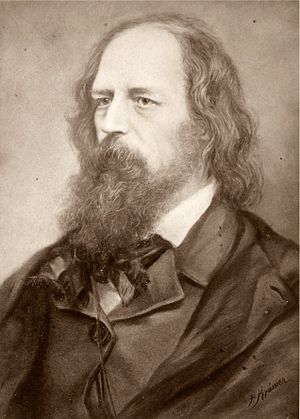
Seven featured lists were promoted this week.
- Nicole Kidman filmography (nominated by Cowlibob) Nicole Kidman is an Australian actress and film producer who has appeared in 70 films and has won 25 awards. Her first film was the drama remake Bush Christmas in 1983, but her breakthrough role was in the 1989 thriller Dead Calm.
- List of accolades received by Dookudu (nominated by Pavanjandhyala) Dookudu is a 2011 Indian Telugu action comedy film directed by Srinu Vaitla, and jointly produced by Ram Achanta, Gopi Achanta and Anil Sunkara. The film revolves around the life of Ajay Kumar, a police officer. His father awakes from a coma, which he has been in for many years after an accident, but his health remains perilous. To aid his recovery, Kumar masquerades as a member of the Legislative Assembly fulfilling his father's ambition for him. It grossed ₹1.01 billion worldwide on a budget of ₹350 million, and won 38 awards from 50 nominations.
- Poet Laureate of the United Kingdom (nominated by SchroCat) is an honorary position appointed by the monarch of the United Kingdom on the advice of the prime minister. The role does not entail any specific duties, but there is an expectation that the holder will write verse for significant national occasions.
- List of cities and towns in Alabama (nominated by Mattximus) Alabama is the 23rd-most-populous state with 4,779,745 inhabitants and the 28th-largest by land area, spanning 50,645.33 square miles (131,170.8 km2). The state is divided into 67 counties and contains 460 incorporated municipalities consisting of 169 cities and 291 towns. These cities and towns cover only 9.6% of the state's land mass but are home to 60.4% of its population.
- List of players who have scored 10,000 or more runs in One Day International cricket (nominated by Vensatry) Scoring over 10,000 runs across a playing career in any format of cricket is considered a significant achievement. Sachin Tendulkar became on 31 March 2001 the first cricketer to achieve this in One Day Internationals, and as September 2015 ten other players achieved the same feat.
- List of tributaries of Shamokin Creek (nominated by Jakec) This lists every tributary flowing into the 32.4-mile (52.1 km) long Shamokin Creek. There's 12 named tributaries, of which 11 flow directly into the Creek. They vary in length from 1 mile (1.6 km) (Furnace Run) to 14 miles (23 km) (Little Shamokin Creek).
- List of accolades received by The Artist (film) (nominated by Birdienest81 and FrB.TG) The Artist is a 2011 French romantic comedy–drama film directed by Michel Hazanavicius, starring Jean Dujardin and Bérénice Bejo. The film is set in Hollywood between 1927 and 1932 and focuses on a declining film star (Dujardin) and a rising actress (Bejo), as silent cinema falls out of fashion and is replaced by the "talkies". It premiered at the 64th Cannes Film Festival on 15 May 2011, and was released in France on 12 October 2011. The film won 93 awards from 185 nominations.
Featured pictures
One hundred featured pictures were promoted this week.
-
(created and nominated by Crisco 1492)
Tech news in brief
Latest tech news from the Wikimedia technical community. Please tell other users about these changes. Not all changes will affect you. Translations are available.
Recent changes
The database size lists have been updated. These control special page update frequency and which wikis use global abuse filters. [1]
Changes this week
The new version of MediaWiki will be on test wikis and MediaWiki.org from October 13. It will be on non-Wikipedia wikis from October 14. It will be on all Wikipedias from October 15 (calendar).
You will be able to upload images to Wikimedia Commons using the visual editor. When the image is uploaded it will be added to the article you're editing. [2]
Pages that show citation error messages will automatically be placed in a hidden category. [3]
Meetings
You can join the next meeting with the VisualEditor team. During the meeting, you can tell developers which bugs you think are the most important. The meeting will be on 13 October at 19:00 (UTC). See how to join.
Tech news prepared by tech ambassadors and posted by bot • Contribute • Translate • Get help • Give feedback • Subscribe or unsubscribe.
Third Wikimedia Spain conference takes place in Madrid
On September 25, 26 and 27, Wikimedia Spain celebrated its third Wikimedia Conference at the Colegio Mayor Universitario Isabel de España in Madrid.
The conference began on the afternoon of Friday, September 25 with different personal experiences related to some of the Wikimedia projects, especially Wikipedia. The first presentation was made by the designers Myriam Cea and Beatriz Fernández (Gráfica Liebre), who told how they came to Wikimedia movement through the collaboration with WikiArS initiative in Madrid, organizating workshops and facilitating the presentation of the project at Libre Graphics Meeting 2014, held in Leipzig (Germany). The next presentation was Pepa Pacheco, responsible for online communication at Museo del Traje (Costume Museum); she told about the use of digital media to improve public participation in the museums, the project Europeana Fashion and the edit-a-thon in which the Museum participated last January, which helped increase the content about fashion and clothing in the encyclopedia digital.
The third presentation was given by Professor Camila Paz and three of her students from San Saturio School, who presented the Clásicos sonados project, whose aim is to record classical texts in their original language and their inclusion in the Wikimedia projects. After a short break, we attended a presentation by Pilar Mareca and Vicente Alcober, professors of the School of Telecommunications (Technical University of Madrid); they spoke about the educational project carried out since 2010 with students editing articles about Physics in Wikipedia. The last of the presentations was given by Olga Berrios, ICT and NGOs specialist, who described the situation of the contents related to disability, poverty or human rights in Wikipedia and proposed to establish the connection between Wikipedia and NGOs to improve such content. To end the day there was a lively round table with the participation of all the speakers and the audience.
Saturday, September 26 was full of events. Earlier in the morning there was a workshop on the Wikidata project, conducted by telecommunication engineer Diego de las Heras, who presented the possibilities, the actual content and how to edit it, plus tools like Autolist 2. It was followed by a workshop on free graphics, by Myriam Cea and Beatriz Fernández (Gráfica Liebre), who showed how to use and how to take full advantage of free tools such as Inkscape, to generate vector graphics. Then Jesús Tramullas, professor at the University of Zaragoza, spoke about sources and verifiability in Wikipedia, on the problems of selection and use of primary sources in articles and references. To end the morning, Sara Rodriguez, lawyer specializing in intellectual property, presented the different types of copyright under the existing Spanish Intellectual Property Law, the most important movements of open knowledge that exist and an analysis of the Creative Commons licenses.
After a break for lunch, in the afternoon Wikimedia Spain held its fifth general assembly, where a new board for the next three years was elected. Finally, on the morning of Sunday September 27, we enjoyed two guided visits to the Museum of Romanticism and the National Archaeological Museum. Progress of the Conference could be tracked through social media platforms by following the hashtag #WikiConnection and we published a Storify about it.
The Wikimedia Conference was organized with the graphic design studio Gráfica Liebre.





